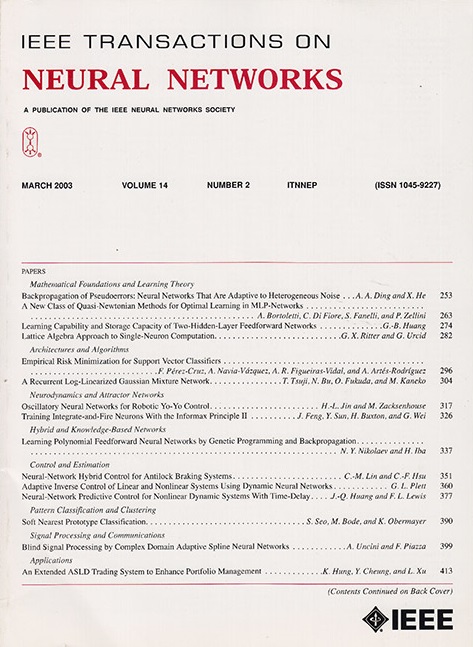回归学习的遗忘攻击
IF 8.9
1区 计算机科学
Q1 COMPUTER SCIENCE, ARTIFICIAL INTELLIGENCE
IEEE transactions on neural networks and learning systems
Pub Date : 2025-04-04
DOI:10.1109/TNNLS.2025.3553821
引用次数: 0
摘要
最近,机器学习已经成为一种流行的方法,用于有效消除机器学习(ML)模型中个人数据对数据所有者删除请求的影响。然而,很少有研究考虑到在遗忘过程中可能存在的安全问题。在本文中,我们提出了第一种遗忘攻击,称为回归学习的遗忘攻击(UnAR),以故意影响目标样本对回归学习模型的预测行为。UnAR的核心概念是误导回归模型抹去与目标样本的有影响样本相关的信息。观察到目标数据的影响样本通常位于远离回归平面的位置,因此我们提出了两种新方法,即影响样本选择(ISS)和影响样本学习(ISU),以识别并随后消除影响样本的谱系。通过这样做,我们可以在与目标样本相关的预测中大量引入偏差,从而对用户产生不利的故意操纵。我们在5个公共数据集上对UnAR进行了广泛的评估,实验结果表明,我们的攻击可以通过只学习0.5%的数据作为有影响的样本来实现超过35%的预测偏差。本文章由计算机程序翻译,如有差异,请以英文原文为准。
Unlearning Attacks for Regression Learning
Recently, the machine unlearning has emerged as a popular method for efficiently erasing the impact of personal data in machine learning (ML) models upon the data owner’s removal request. However, few studies take into consideration the security concerns that may exist in the unlearning process. In this article, we propose the first unlearning attack dubbed unlearning attack for regression learning (UnAR) to deliberately influence the predictive behavior of the target sample against regression learning models. The central concept of UnAR revolves around misleading the regression model into erasing the information associated with the influential samples for the target sample. Observing that the influential samples for target data are generally located far away from the regression plane, we thus propose two novel methods, known as influential sample selection (ISS) and influential sample unlearning (ISU), to identify and subsequently eliminate the lineage of the influential samples. By doing so, we can substantially introduce bias into the prediction pertaining to the target sample, yielding the deliberate manipulation for the user adversely. We extensively evaluate UnAR on five public datasets, and the experimental results indicate our attacks can achieve prediction deviations over 35% by unlearning only 0.5% data as the influential samples.
求助全文
通过发布文献求助,成功后即可免费获取论文全文。
去求助
来源期刊

IEEE transactions on neural networks and learning systems
COMPUTER SCIENCE, ARTIFICIAL INTELLIGENCE-COMPUTER SCIENCE, HARDWARE & ARCHITECTURE
CiteScore
23.80
自引率
9.60%
发文量
2102
审稿时长
3-8 weeks
期刊介绍:
The focus of IEEE Transactions on Neural Networks and Learning Systems is to present scholarly articles discussing the theory, design, and applications of neural networks as well as other learning systems. The journal primarily highlights technical and scientific research in this domain.
 求助内容:
求助内容: 应助结果提醒方式:
应助结果提醒方式:


